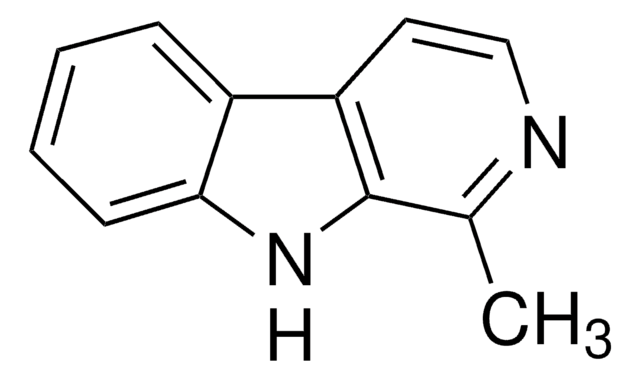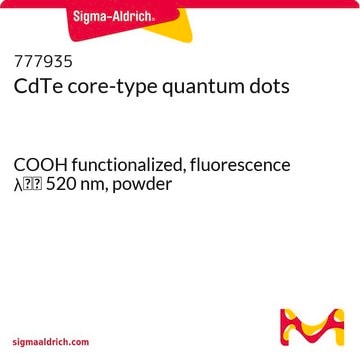All Photos(1)
About This Item
Empirical Formula (Hill Notation):
C11H8N2
CAS Number:
Molecular Weight:
168.19
MDL number:
UNSPSC Code:
12352103
PubChem Substance ID:
NACRES:
NA.23
Recommended Products
Assay
99% (HPLC)
Quality Level
form
powder
mp
209-214 °C
SMILES string
C1(C=CC=C2)=C2C(N=CC=C3)=C3N1
InChI
1S/C11H8N2/c1-2-5-9-8(4-1)11-10(13-9)6-3-7-12-11/h1-7,13H
InChI key
NSBVOLBUJPCPFH-UHFFFAOYSA-N
Related Categories
Application
Novel aromatic amine compound for organic electroluminescent device, illuminating device and display.
Signal Word
Danger
Hazard Statements
Precautionary Statements
Hazard Classifications
Acute Tox. 3 Oral
Storage Class Code
6.1C - Combustible acute toxic Cat.3 / toxic compounds or compounds which causing chronic effects
WGK
WGK 3
Flash Point(F)
Not applicable
Flash Point(C)
Not applicable
Certificates of Analysis (COA)
Search for Certificates of Analysis (COA) by entering the products Lot/Batch Number. Lot and Batch Numbers can be found on a product’s label following the words ‘Lot’ or ‘Batch’.
Already Own This Product?
Find documentation for the products that you have recently purchased in the Document Library.
Manipulation of electron deficiency of δ-carboline derivatives as bipolar hosts for blue phosphorescent organic light-emitting diodes with high efficiency at 1000 cd m-2.
Zhang Z, et al.
Journal of Material Chemistry C, 4, 4226-4235 (2016)
Spectral and photophysical properties of the δ-carboline anhydrobase (N1-methyl-5H-pyrido[3,2-b]indole).
Balon M, et al.
Chemical Physics, 302(1-3), 13-20 (2004)
Manipulation of electron deficiency of δ-carboline derivatives as bipolar hosts for blue phosphorescent organic light-emitting diodes with high efficiency at 1000 cd m-2.
Zhang Z,et al.
Journal of Material Chemistry C, 4(19), 4226-4235 null
Controlling the exciton lifetime of blue thermally activated delayed fluorescence emitters using a heteroatom-containing pyridoindole donor moiety.
Kim G H, et al.
Materials Horizons, 4, 619-624 (2017)
Thermally activated delayed fluorescence of co-deposited copper(i) complexes: cost-effective emitters for highly efficient organic light-emitting diodes.
Wang Z, et al.
Journal of Material Chemistry C, 5, 6982-6988 (2017)
Our team of scientists has experience in all areas of research including Life Science, Material Science, Chemical Synthesis, Chromatography, Analytical and many others.
Contact Technical Service![9H-pyrido[2,3-b]indole AldrichCPR](/deepweb/assets/sigmaaldrich/product/structures/418/992/8c7bac06-11e8-45d7-b863-5d35b582e871/640/8c7bac06-11e8-45d7-b863-5d35b582e871.png)

![Tris[2-(p-tolyl)pyridine]iridium(III) ≥99% (HPLC)](/deepweb/assets/sigmaaldrich/product/structures/207/957/bb807380-3690-46c2-809e-e6bc2ba29fa5/640/bb807380-3690-46c2-809e-e6bc2ba29fa5.png)







